Free Tampons Should Be A Human Right

Quick question: The last time you went into a public restroom or a bathroom at school or work, how much did you pay for the toilet paper you used?
Allow me to answer: You paid nothing. It would probably never occur to you to tote around a spare roll of toilet paper in case you have to poop while you’re away from home, right?
For sanitary reasons, we as a society have decided to encourage people to wipe their bottoms. For sexist reasons, we don’t afford that same consideration to girls and women who don’t want to bleed through their clothes and all over the furniture or face health issues from not taking proper care of their periods.
That's changing. After years of being made to feel ashamed of a normal bodily functions, more women are speaking up about menstruation and the need for society to treat feminine products as a very basic necessity.
“Tampons and pads should be treated just like toilet paper. They serve the same purpose -- items to tend to our every day, normal bodily functions," Nancy Kramer told The Huffington Post by email on Tuesday. Kramer is the woman behind "Free the Tampons," a campaign she started up in Ohio to put free tampons and pads in all restrooms outside the home.
"If men got their periods, we would not be having the conversation," she said. According to Kramer's research, it costs about $4.67 per female student or employee to provide free sanitary products annually. "In other words, for less than a fancy cup of coffee, you can supply a woman with supplies for a year," she said.
Eighty-six percent of the nearly 800 people who took my extremely unscientific Twitter poll agree that tampons should be free.
Should free tampons/pads be provided at work or school or in public restrooms, like toilet paper?
— Emily Peck (@EmilyRPeck) March 8, 2016
While no one thinks twice about the cost of stocking restrooms with toilet paper and soap and hand towels, feminine products are considered a luxury. We live in a BYOTampon world.
That's one more added stress and expense in a woman's life that men simply never have to experience. Women must scramble to ensure they’re covered. Some use a single tampon or pad for too long because they don't have extras or can't afford them, causing medical difficulties. Others wad up a bunch of toilet paper and wing it. Many women on public assistance cannot afford to buy these products. For homeless women, having their period is even more stressful.
At public schools, tampons and pads are hidden away in the nurse’s office. Adolescent girls already dealing with a lot of hard issues must draw unwanted attention to themselves to get their hands on a sanitary napkin.
State laws -- crafted by legislators who are, for the most part, men who don’t think about menstruation -- do not include sanitary products on the list of medical products exempt from sales and luxury taxes. In some other countries, tampons are taxed as much as 18 percent and considered a luxury good.
Girls actually wind up missing school because of their period, as this recent piece from Broadly details. If they are in class, maybe they’re a little more anxious and stressed about their situation. They don’t concentrate as well.
Do you know what isn't taxed? Rogaine. Medical necessity. Know what is taxed? Tampons and pads. Apparently we should bleed on subways seats.
— Cathy O'Neil (@mathbabedotorg) March 3, 2016
Treating feminine products like toilet paper and not like high-end cosmetic supplies is not a fringe idea these days. The New York Times notes that there is free sanitary product legislation pending in Wisconsin. In Columbus, Ohio, a councilwoman is asking that city rec centers, schools and swimming pools provide free supplies.
In New York City, lawmakers are considering legislation to make these products free to girls. This is particularly important for kids from poor families who might not be able to spend cash on tampons. And when they do buy these products, they wind up paying even more for them at bodegas and corner pharmacies and supermarkets that overcharge.
@EmilyRPeck Because the odds of carrying quarters for the vending machine greatly decrease the more dire the circumstances increase.
— Stephanie (@thestephaniebee) March 8, 2016
In some schools in India, girls actually drop out because they have no support for dealing with their periods -- no sanitary pads, separate toilets or even a place to throw away used feminine products.
Many companies provide tampons and napkins to employees. It’s a no-brainer “perk” that will keep women in the office for far less money than all the free food, snacks and ping-pong tables that tech companies have on offer.
Love HuffPost? Become a founding member of HuffPost Plus today.
@mathbabedotorg you'd appreciate the bathroom in our Tel Aviv office pic.twitter.com/JdcLdDfXWv
— Mick Weinstein (@mickwe) March 8, 2016
Gaining even more traction these days is the movement to stop taxing women’s products. According to NPR, five new bills were introduced this year seeking to get rid of the sales tax on tampons and pads. Forty states and the District of Columbia still tax these products.
Last week, a group of women filed suit against New York, accusing the state of unlawfully taxing tampons and feminine hygiene products. The women, who are seeking class action status, argue that feminine products -- currently slapped with a 4 percent sales tax -- should be classed as a medical necessity so that they are not taxed.
“Justice Scalia once wrote for the Supreme Court that ‘A tax on wearing yarmulkes is a tax on Jews,’" the women write in the lawsuit. “A tax on tampons and sanitary pads is a tax on women. The Tampon Tax is irrational. It is discrimination. It is wrong.” The state makes about $14 million a year taxing women’s products.
Maybe you think that’s an overly broad reading of the law? Here are some other things classed as medical necessities that are exempt from sales tax in New York: Chapstick, condoms, facial wash, dandruff shampoo, Rogaine and adult diapers. The Food and Drug Administration classifies feminine products as “medical devices,” the suit notes.
The movement to free tampons from taxes has been around for a while. Five states have eliminated their so-called "tampon taxes," including Minnesota (1981) and Pennsylvania (1991), NPR notes. Canada got rid of its tax last year, The Associated Press reports. Utah upheld its tax in February.
New York Gov. Andrew Cuomo (D) has said he will support repealing the tax.
Cathy O’Neil, one of the plaintiffs on the lawsuit, hopes that happens soon, she writes in her blog. “Because according to my Twitter feed there are a whole bunch of people who are willing to protest the ongoing tax by free bleeding on the subway, which could get mighty sticky come July.”
O’Neil, a data scientist who blogs at Mathbabe.org, writes that ending the tax is really just the first step.
“If men had periods, I’ve always said, then tampons would be free, or at least as free as toilet paper. Instead, I’ve spent countless hours and dollars desperately locating a tampon in the middle of a conference or workday. Fuck this. Let’s not stop until they are freely accessible.”
Also on HuffPost
U.S. Attorney General Loretta Lynch
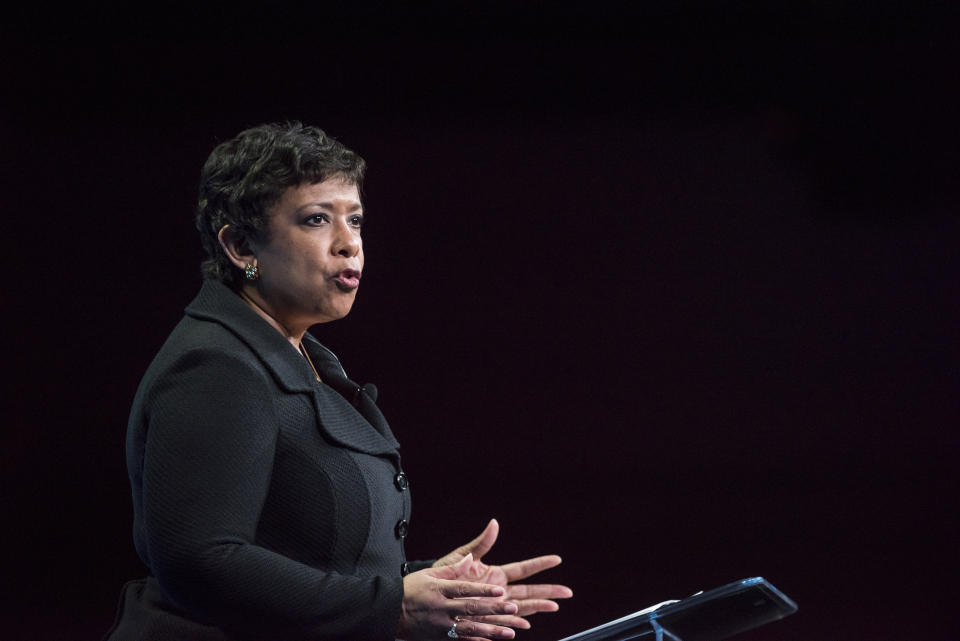
"America is a land of second chances -- but it must also be a land where we give opportunities to young people who haven't gotten a chance at all," Lynch said last year.
Sen. Tammy Baldwin (D-Wis.)
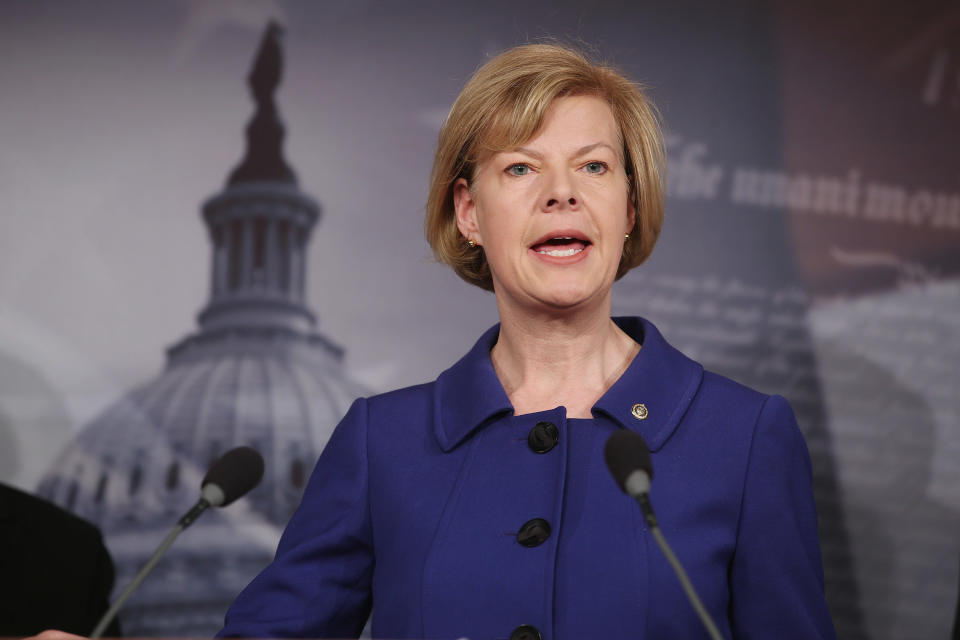
Rep. Mia Love (R-Utah)

"The reason why there are so many people that are here illegally is because it’s easier to be here illegally than it is to be here legally," Love said last year. "We have to allow people the honor of experiencing what my parents experienced years ago and what these people are experiencing today."
Rep. Tammy Duckworth (D-Ill.)
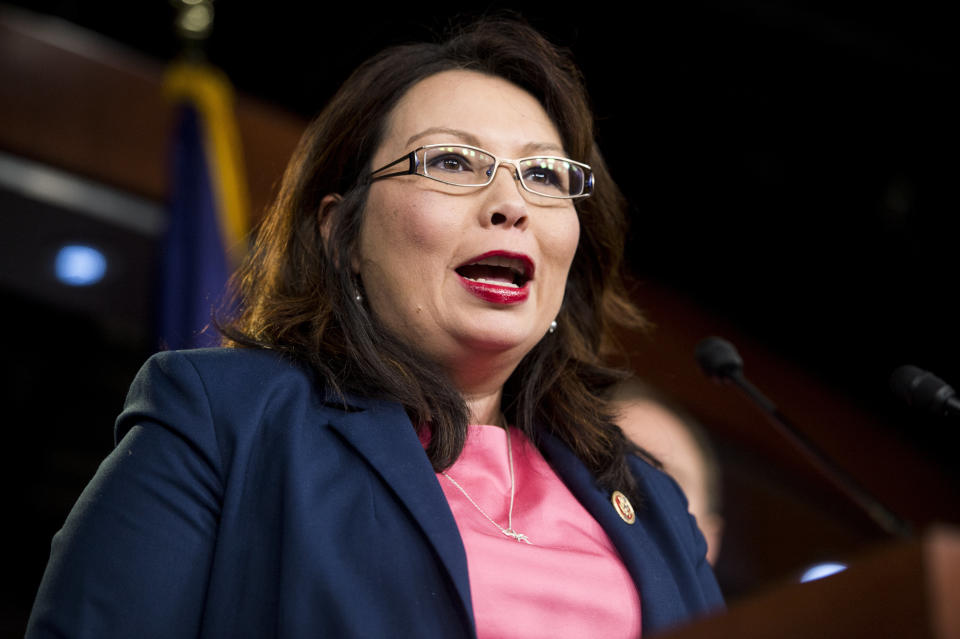
First elected to the House in 2012, she's now challenging Illinois Republican Mark Kirk for his Senate seat.
Baltimore City State's Attorney Marilyn Mosby
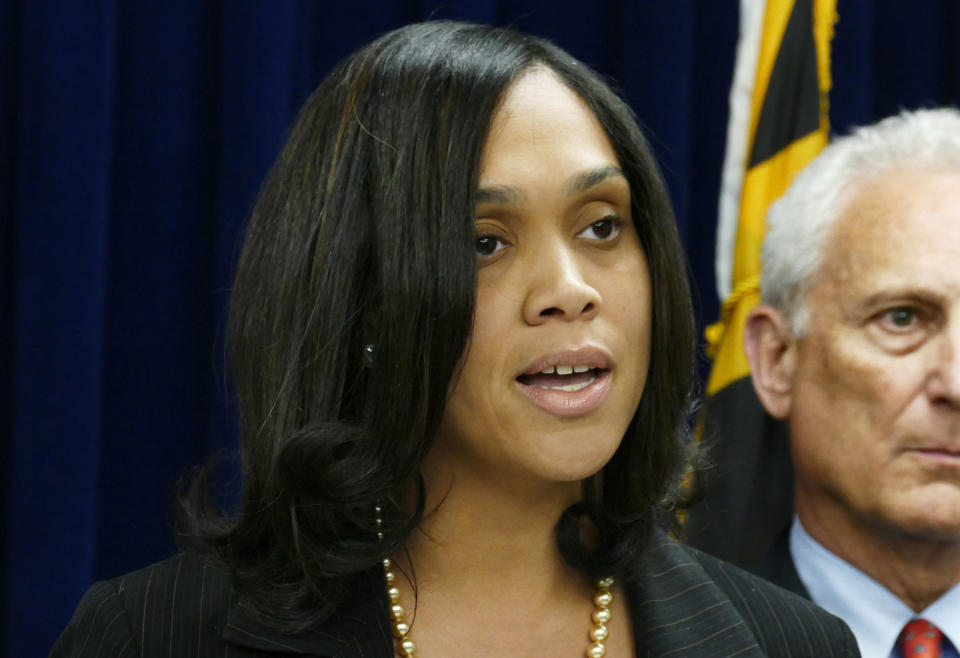
Fed Chair Janet Yellen

New Mexico Gov. Susana Martinez (R)

Rep. Grace Meng (D-N.Y.)
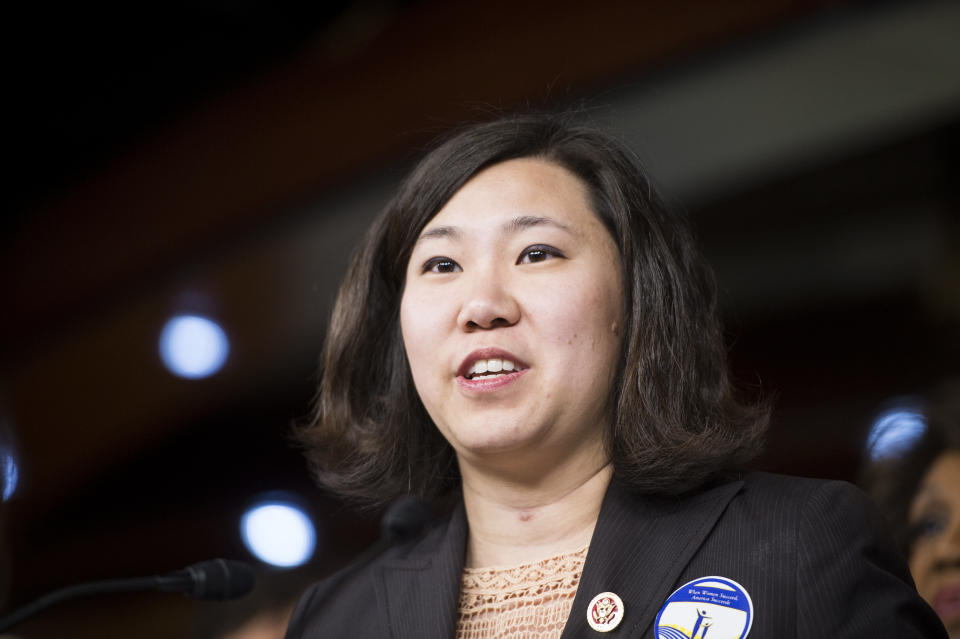
This article originally appeared on HuffPost.

